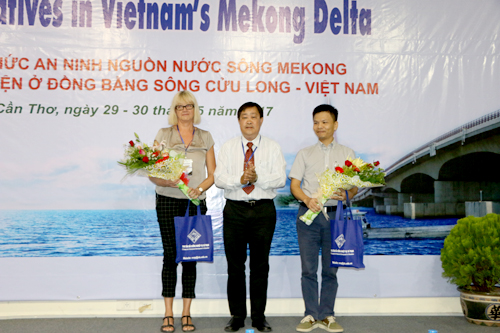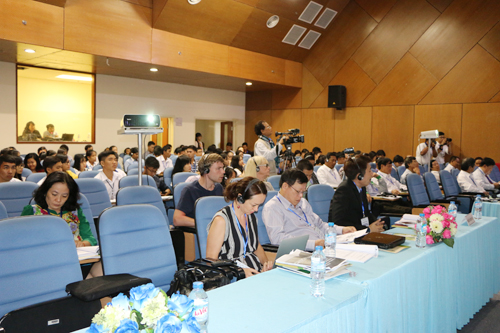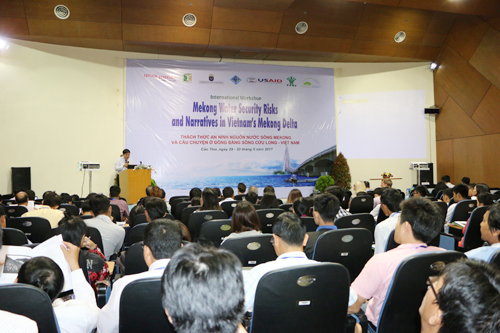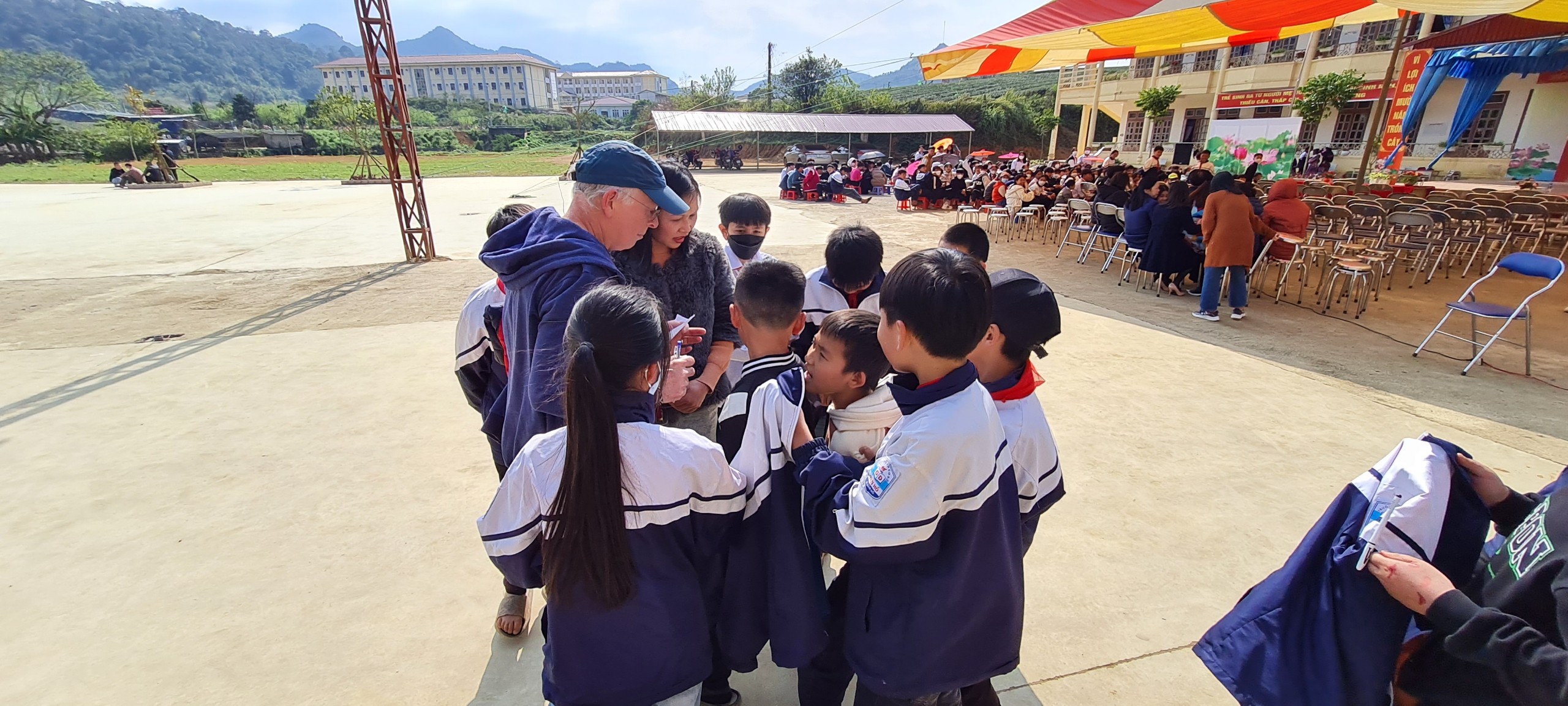
Workshop: Water Security Risks and Narratives in Mekong Delta – Vietnam
Located at the extreme southeastern end of the Mekong River where it approaches and empties into the South China Sea through a network of distributaries, the Mekong Delta has long been referred to as Vietnam’s “rice bowl” which is characterized by dominant fertile agriculturally-rich low-lands and what may be called a “biological treasure trove.” A majority of the Delta’s 20 million, ethnically diverse population rely on the River’s fish resources and rice production for their subsistence, with very little margin for error. As home to thousands of species of fish, bird, reptile, and mammal species, the Mekong Delta is one of the most biologically diverse areas in the world. Tens of endangered species, such as the largest bird, Sarus crane, and giant catfish, thrive in this maze of wetlands, swamps, arroyos, and canals too.
However, Vietnam’s Mekong Delta is now one of the world’s most fragile regions appearing most vulnerable to climate hazards, notably temperature rises and extreme drought followed by freshwater scarcity and salinity intrusion. More challenging is the fact that upstream dam-building and water diversion projects have caused severe and irreparable damage to the Delta, making the impacts of climate change become much more serious than what was assumed in prevailing climate change scenarios in Vietnam. As a result, the Delta has so much at stake due to huge water shortages, which in turn may lead to increased rate of salinity, inland ground depression, and humanitarian and other economic impacts.
From China to Vietnam, the mighty Mekong is the lifeblood of riparian states and offers a glimpse into the long history and diverse cultures of the region. The last decades have witnessed the sustained pace of economic development of those countries where rapid economic growth reveals the substantial trade-off between economic development and environmental protection. In a clash between riparian governments trying to meet huge demands for hydropower for a growing population in their energy-hungry urban centers, and the need to protect and preserve the Mekong’s ecological riches and fisheries, conservation and water and food security are clearly losing. Despite growing concerns from downstream communities and huge biodiversity and agricultural losses, Mekong mainstream water transfers and dam building are moving forward faster than the completion of any environmental impact assessments needed to provide the evidence of significant impacts.
Political will and mitigation measures need to be built within Mekong basin countries to solve integrated water management challenges in the region. Yet, political will to take cooperative action on shared Mekong water issues is impeded by low levels of mutual understanding and a lack of information-sharing at the inter-state and inter-party levels, and the absence of available avenues for concerned citizens, especially those directly affected by dam-building and water diversion projects, to raise their voices on issues of national importance.
The workshop was held by People and Nature Reconciliation (PanNature) in co-operation with Can Tho University’s Education Faculty, the Swedish Embassy and the Vietnam Environmental Journalists Forum.
The workshop aims to:
- Raise awareness about dual impacts simultaneously caused by climate change and upper Mekong unsustainable development projects to Mekong Delta environment and water resources security;
- Built understanding across regional journalists of the Mekong water security risks and their implications for regional and international communities from ground-up and interdisciplinary perspectives;
- Promote better communication and media practice on environmental security matters of Mekong Delta and Mekong River as a whole;
- Enhance information-sharing and networking among journalists across the region.
Participants: 70 delegates, including government officials, scientists, NGOs, community, regional and local reporters, and university students.



Workshop Document:
Water security in Mekong Delta Discourse
Assoc. Prof. Dr. Le Anh Tuan – Deputy director of the DRAGON Institute – Can Tho University
Mekong Water Security and the Role of Journalism
Adam Hunt Christopher – Senior Consultant: Media, Communications & Program Development, Earth Journalism Network – Internews
Nguyen Minh Quang – Lecturer and freelance journalist at Can Tho University, focusing on politics, conflict studies and Mekong environmental security issues
Agriculture and irrigation development in GMS region and pressure on Mekong’s water resources
Dr. Thanapon Piman – Water cluster – Stockholm Environment Institute (SEI), Asia Centre, Thailand
Trans-boundary Issues: Uncertainty Water Resources & Pollution
Dr. Duong Van Ni, Cantho University, Vietnam
Update on hydropower development on the Mekong River
Maureen Harris, Southeast Asia Program Director – International River
Water diversions in the lower Mekong basin – current status and issues
Institutional Frameworks relate to Mekong cooperation at a glance
Nguyen Nhan Quang – River Basin Management expert


